PROFILE
She was born in Tokyo. Captivated by African music, she traveled alone to a remote village in Kenya for training, and became the world's first female performer of the traditional string instrument, the nyatiti, which was traditionally reserved only for a select few men in the region.
In 2009, Anyango was named one of "Japan's 100 Most Respected People" by Newsweek magazine. In 2010, she performed at the FUJI ROCK FESTIVAL and was selected as the Best Act in the World Music category. In 2022, she released her ninth album, AOKO.
Currently, she performs not only across Japan but also at music festivals in Kenya, France, Germany, and the United States. As a Japanese-Kenyan Cultural Ambassador, she conducts lectures and performances at over 100 schools, including elementary, junior high, and high schools, as well as universities throughout Japan.
| 1997 | Formed a trio band, serving as both the band leader and lead vocalist. |
| 1999 | Performed daily at live houses and self-produced a CD TAIKA. |
| 2001 | Traveled to New York for music training. On that very same day, the September 11th attacks occurred. Returned to Japan just before reaching New York. |
| 2003 | Returned to New York for further music training. Three days after arriving, the U.S. began its attack on Iraq, prompting her return to Japan. In a state of disheartenment, she attended a performance by an East African music band at the invitation of a friend in Tokyo. Fell in love with Kenyan traditional music and joined the band. |
| 2003 | Returned to New York for further music training. Three days after arriving, the U.S. began its attack on Iraq, prompting her return to Japan. In a state of disheartenment, she attended a performance by an East African music band at the invitation of a friend in Tokyo. Fell in love with Kenyan traditional music and joined the band. |
| 2004 | First set foot on Kenyan soil. Fascinated by the land and people of Africa. Became increasingly captivated by Kenyan music and the nyatiti. |
| 2005 |
Traveled alone to Kenya to learn a traditional African instrument, the nyatiti. 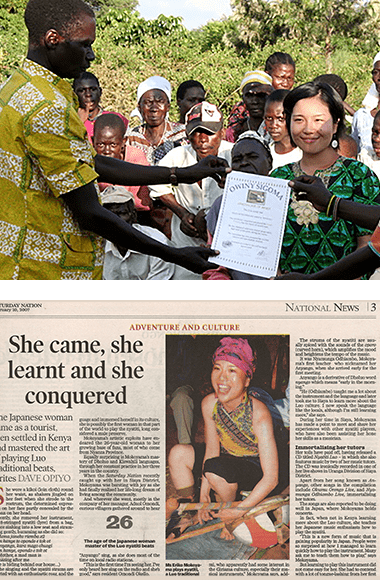 |
| 2006 |
Self-produced the CD NYATITI-LUOの魂- in Japan. Formed the nyatiti chorus and dance team “Anyango with Nyatiti Warembo!!”. Performed at various events such as the WFP (World Food Programme) ceremonies in Japan. |
| 2007 |
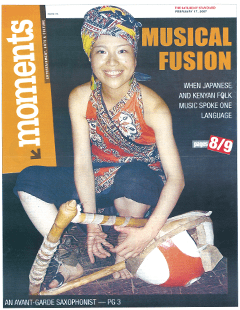 Her CDs received much airtime on various Kenyan radios. Performed at the UN-sponsored STOP AIDS concert in Homabay, Kenya, with an audience of over 50,000.  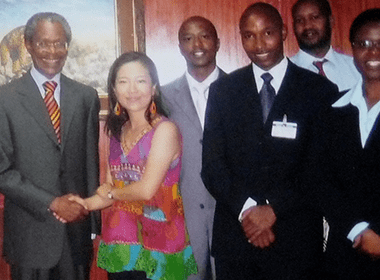 Appointed as a cultural goodwill ambassador for Japan-Kenya by the Kenya Tourism Board. |
| 2008 |
Invited 12 high school students from Kenya to Japan for educational exchange with Japanese high school students. 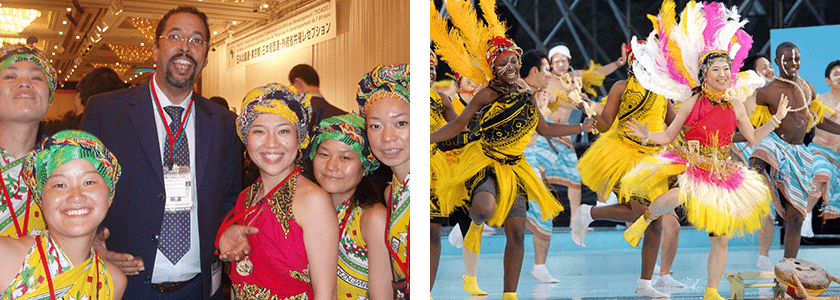 Performed at the TICAD IV (4th Tokyo International Conference on African Development) ceremony in front of world leaders and also at the WFP (World Food Programme) ceremony. The documentary film UPEPO, focusing on Anyango’s Nyatiti training in Kenya, was screened in Tokyo. |
| 2009 |
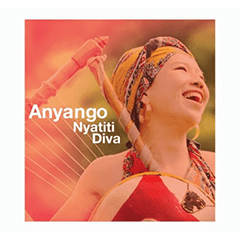 Went on tour in Kenya. Selected as one of the “100 Japanese People Respected by the World” in the Japanese edition of Newsweek. 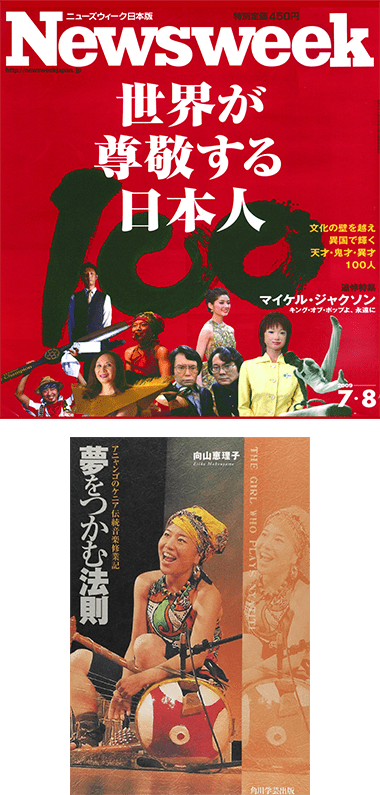 |
| 2010 |
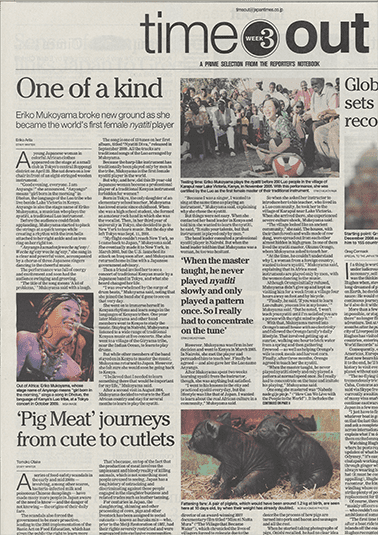 Established a French office to expand into the UK and France. Performed at the FUJI ROCK FESTIVAL, one of Japan’s largest outdoor music festivals, and was selected as the Best Act Artist in the World Music category. 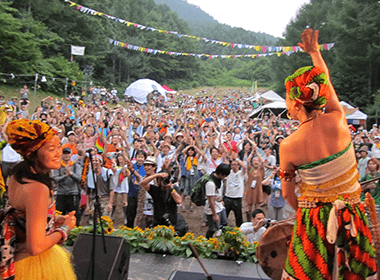
Released the second album HORIZON, which was chosen as a monthly recommendation disc by DENON. 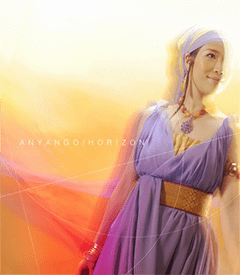 |
| 2011 |
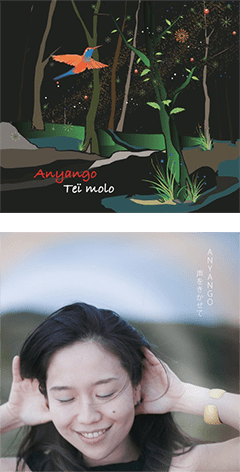 Recorded in France and Cameroon, and released the third album Teï molo. Appeared on Japanese television programs, including Tetsuko’s Room on TV Asahi and The Prime Show on WOWOW. Was featured on NHK BS1’s El Mundo for a week. 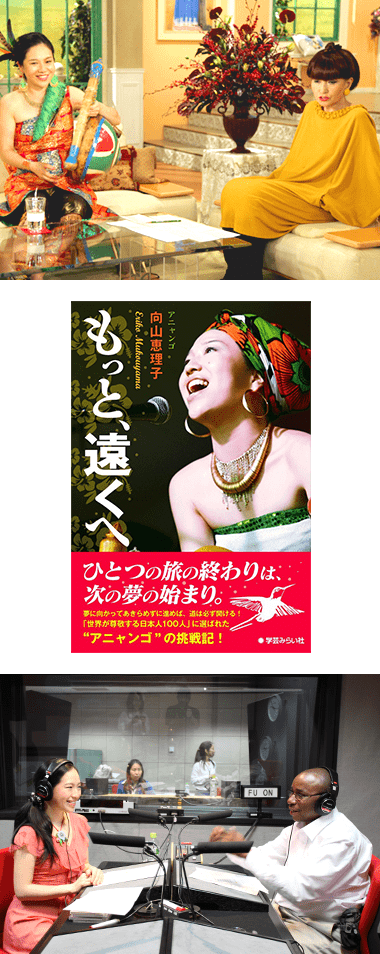 Also performed at Kodaiji Temple in Kyoto. 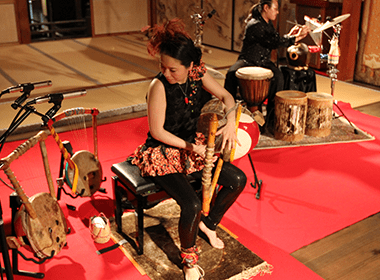 |
| 2012 |
Performed a dedication at Izumo Taisha, marking the first time a non-Japanese instrument was used in its 1500-year history. 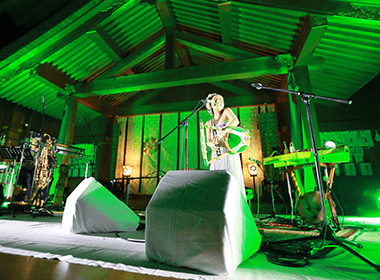 Published her third book, Anyango’s New Rules for Grasping Dreams (Gakugei Mirai Sha). The book reached number one in the non-fiction category on Amazon Japan. 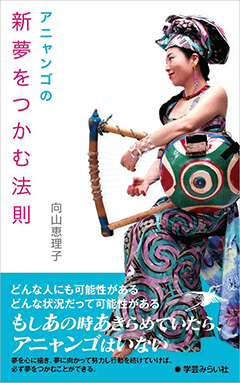 The cover of Kenya’s SATURDAY NATION magazine featured the passing of Anyango’s mentor, Okumu Orengo, in 2011. The article also featured Anyango. |
| 2013 |
Embarked on her first world tour (Italy, Germany, Kenya, USA). Performed at the Mvet Art Festival in Strasbourg, France. Launched the regular concert series Anyango・Promenade. Released her fourth solo album, ALEGO ~Nyatiti’s Homeland~. Held a charity concert at Aoyama Gakuin University’s chapel for the education of Kenyan children. Appeared on TV Tokyo’s documentary program “Crossroad”. Featured on NHK World TV’s My African Music. 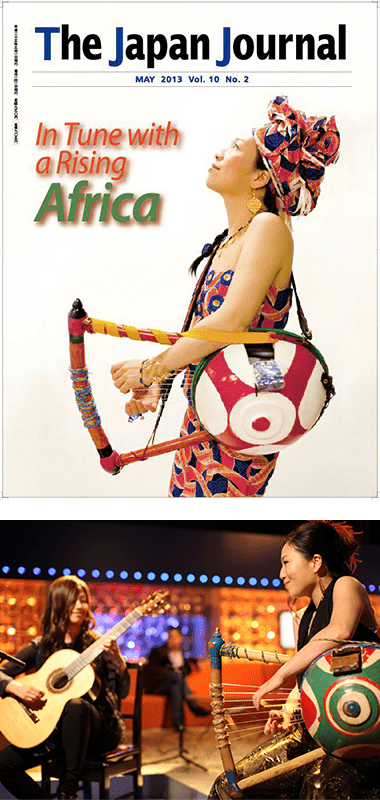 |
| 2014 |
Embarked on her second world tour (France, USA, Myanmar, Kenya, Uganda). 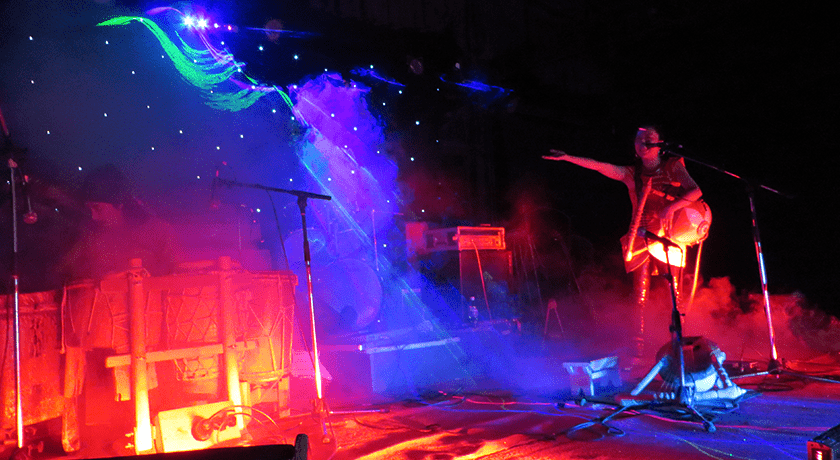 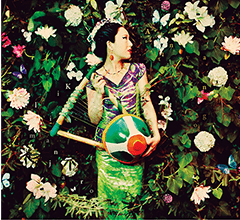 Released her fifth solo album, Kilimanjaro, in Japan. 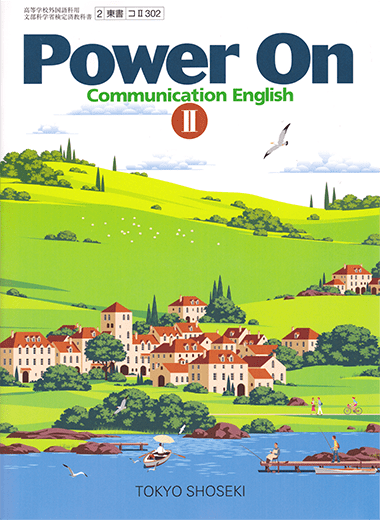 Served as a guest lecturer at the Berklee College of Music in Boston. |
| 2015 |
Released her sixth solo album, Savanna. 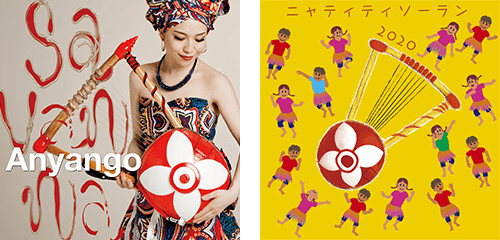 Guest performance at the “United Nations Choir Peace and Hope Concert” (70th Anniversary of Post-War) held in Tokyo, Hiroshima, and Nagasaki. 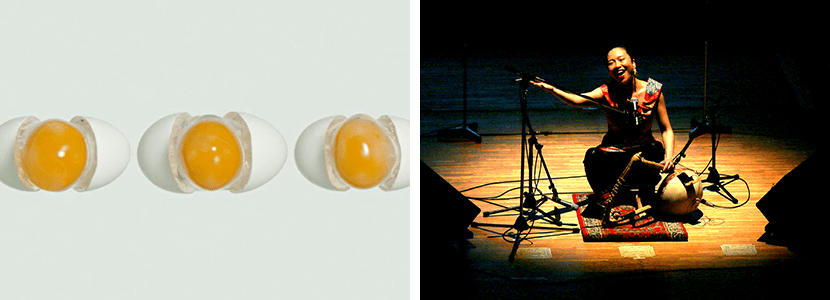 The Brazilian popular TV drama series “”Kalanga””, Courtesy of Atama Filmes, decided to use “”Ogwang””. |
| 2016 |
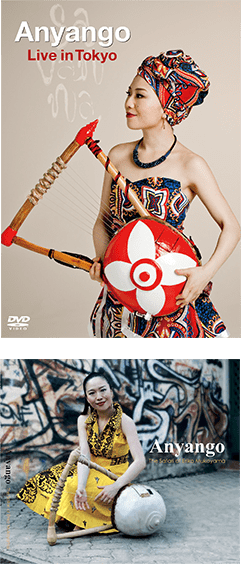 Released the best-of album The Safari of Eriko Mukoyama (Anyango Kenya Best) in Kenya, Tanzania, and three other East African countries. Released the DVD Anyango Live in Tokyo. Appeared on NTV Kenya and performed at a live house in Nairobi. 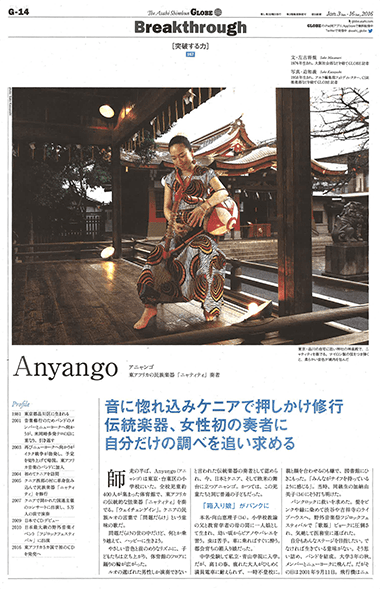 |
| 2017 |
Released the best-of album The Safari of Eriko Mukoyama (Anyango Kenya Best) in Japan. Was featured on an African internet TV channel for a year, making her name widely known across Africa. Had a regular spot on NHK Radio Swahili for three years. Appeared on a New Year’s special program on the TBS network introducing Anyango as one of the famous Japanese people in the world. Received the Higashikuni-no-miya Cultural Award for her decade-long cultural exchange activities between Japan and Kenya. |
| 2018 |
Performed nyatiti soran with Nagano kids at the 8th International Kohaku Uta Gassen. Soran is a traditional Japanese dance and music style. Anyango’s addition of the nyatiti to soran bushi created an entirely new musical style back in 2008.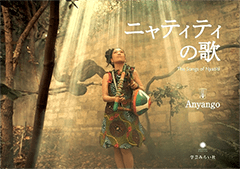 Published the essay collection Nyatiti no Uta (Songs of the Nyatiti) (Gakugei Mirai-sha). |
| 2019 |
Participated in the UNDP (United Nations Development Programme) symposium AFRI-CONVERSE. Performed at the African Festa organized by the Japanese Ministry of Foreign Affairs. |
| 2020 | All performances were canceled due to the COVID-19 pandemic. Used the time to focus on music production. |
| 2021 |
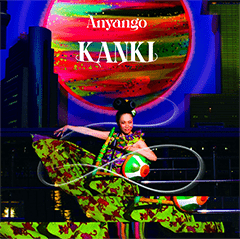 Released her eighth album, KANKI. |
| 2022 |
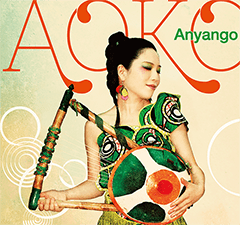 Released her ninth full album, AOKO. Appeared at JICA’s Gathering to Talk About Africa. Resumed school performances within Japan. |
| 2023 |
Traveled to Kenya for the first time in several years. Appeared on NTV Kenya. 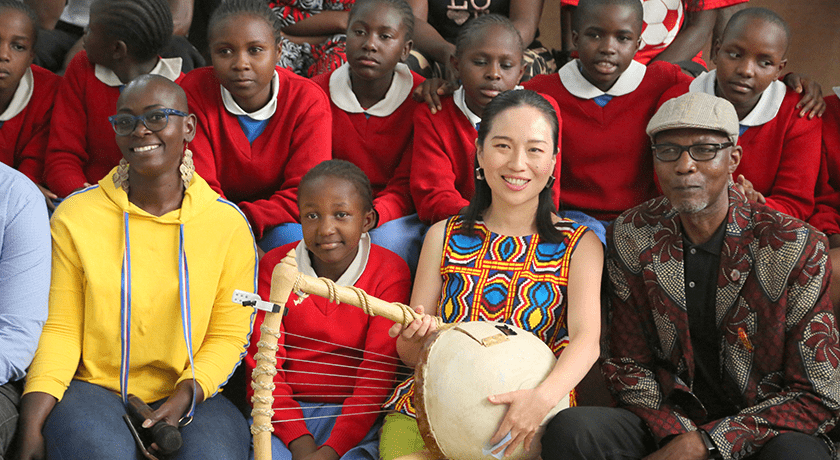 |
| 2024 |
 Released a new song “DUNIA”. Anyango is presently performing live throughout Japan:Tokyo, Yokohama, Iwate, Nagano, Nara and many more. |
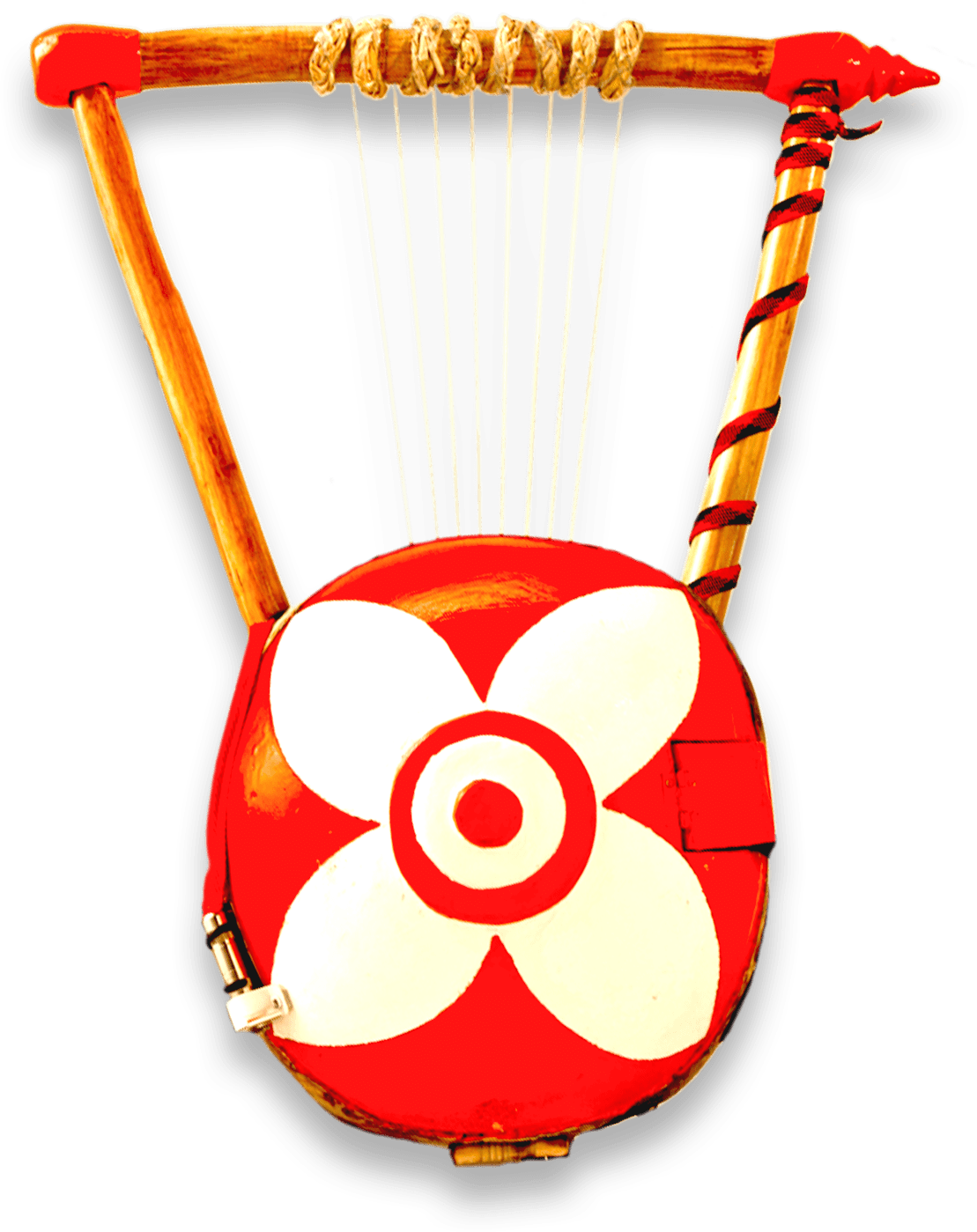
The NYATITI is a traditional string instrument of the Luo people, who live in East Africa.
Originally, it was a sacred instrument that only selected men of the Luo people were allowed to play. Eriko Mukoyama, also known as Anyango, became the first woman in the world permitted to learn and perform the nyatiti after living and training in a remote Kenyan village without electricity or running water.
The guitar is played with its surface facing outward, while the nyatiti is played with its surface facing the player’s body, thus facing the instrument directly. When played, it is placed upon the ground, and the player sits on a low stool, keeping it a slight distance from the body. The iron bells attached to the right ankle are called “gara” and the “oduongo” is an iron ring on the right big toe. The player creates rhythms by striking the nyatiti’s wooden edge with the oduongo and ringing the gara. The player must simultaneously handle vocals, strings, and percussion.
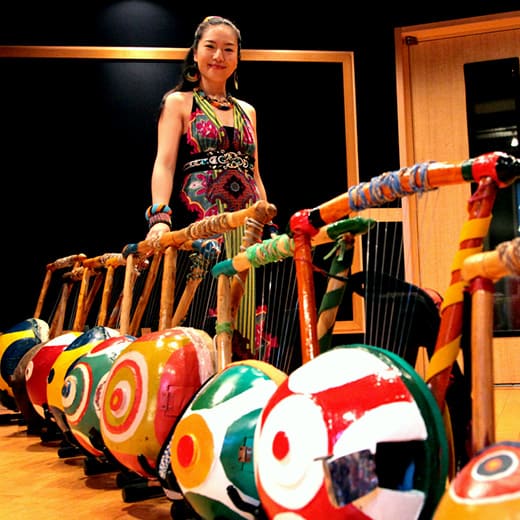
The nyatiti is also known as “kamba nane,” which means “eight strings” in Swahili, from “kamba” (string) and “nane” (eight). It is about two sizes smaller than an acoustic guitar, with the body carved out of wood such as fig, forming a hemispherical shape. The flat side of the hemisphere is covered with cowhide. The strings are eight nylon threads, with three different thicknesses. In the past, the strings were made from the Achilles tendons of female cattle. The secret of the mysterious distortion sound is created by two thin bamboo-like pieces (reeds) and wood pieces sealed within beeswax.
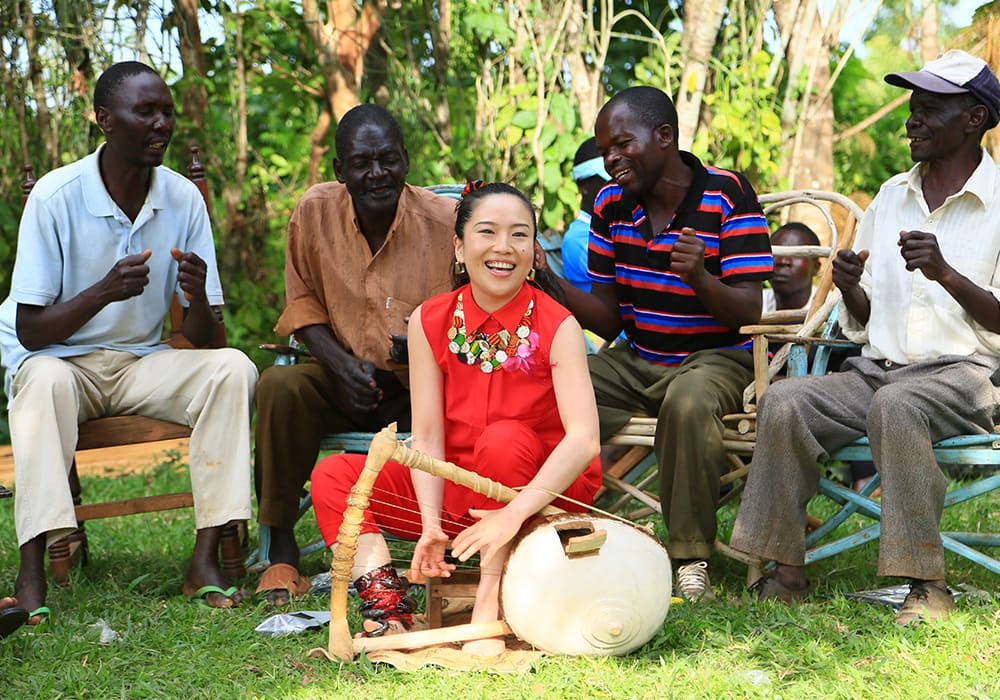
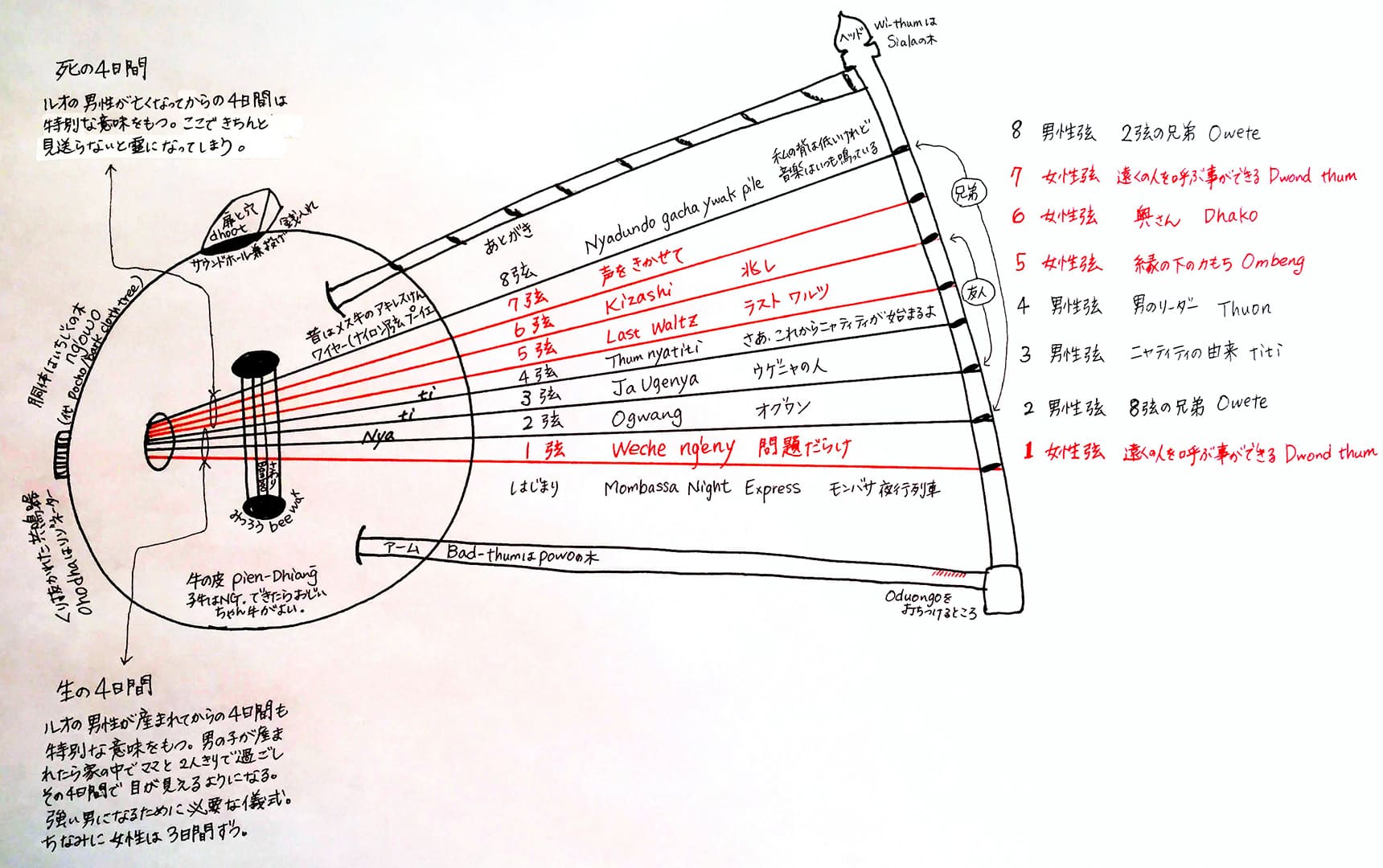
For the Luo people, the “four days of birth and four days of death” hold special significance. The four lower strings of the nyatiti represent the four days of birth, while the four upper strings represent the four days of death. The instrument is named nyatiti because, when played from the second, third, and fourth strings starting from the bottom, it sounds like “nya, ti, ti,” as if the strings are speaking.
The late Okumu Orengo, a great nyatiti player who passed away in December 2011, contributed to the preservation of Kenya’s traditional music and influenced many musicians including Ayub Ogada, Joseph Nyamungu and Eriko Mukoyama. Eriko Mukoyama (aka Anyango), the world’s first female nyatiti player, was Okumu’s last disciple. “Go out into the world; go to the places I cannot reach and play this instrument for the entire people of the earth.” With this message in her heart, Anyango continues to perform the nyatiti around the world.


